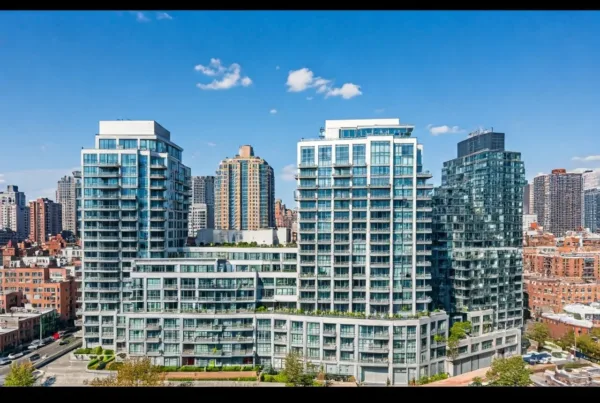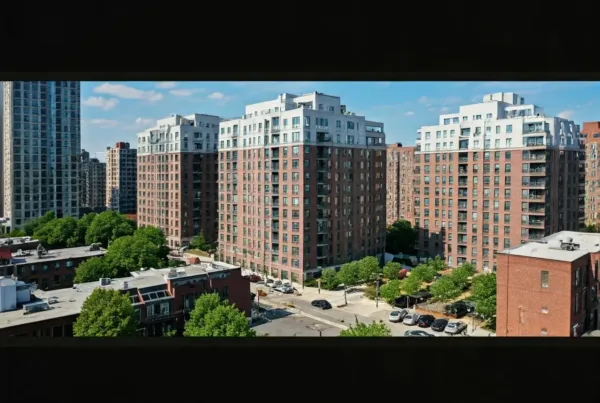Unlock the secrets to successful unit investments with our comprehensive guide for newbie investors. Make smart choices and grow your wealth.
Table of Contents
Have you ever thought about owning a special place where you can live or invest? In the world of real estate, people often talk about “units.” So, what exactly is a buying unit? Let’s break it down in a simple way!
What is a Real Estate Unit?
A real estate unit is like a single home or a part of a building where people can live or work. It can be something like an apartment, a condo, or even a nice office space. When you buy a real estate unit, you own a piece of that property. This can be a great step for anyone who wants to have their own place or make smart investments.
Why Buy a Unit?
So, why might you want to buy a unit? There are several good reasons! First, owning a unit can mean having a cozy home just for you and your family. Also, if you decide to rent it out, the money you make can help pay for it. For many new investors, buying a unit is a smart way to start in the exciting world of real estate. It’s a chance to learn while building something that can grow in value over time.
Whether you’re looking for a place to call home or thinking about making a wise investment, understanding real estate units is a great first step!
Types of Units You Can Buy
When you’re thinking about buying a unit, it’s essential to know there are different types available. Each type of unit offers unique features and benefits. Let’s explore the types of units for sale so you can find the right one for you!
Residential Units
Residential units are places where people live. They include home units for sale like apartments, condominiums, and houses. Apartments are often in big buildings and usually have lots of neighbors. Condominiums, or condos, are like apartments but often you own your individual unit. Houses, on the other hand, are standalone buildings typically with yards and more space. Many people buy residential units to live in them or rent them out for extra money.
Commercial Units
Commercial units are used for business purposes. This includes stores, offices, and warehouses. If you like the idea of owning a place that helps businesses grow, a commercial unit might be the right choice for you. These units can generate income by renting them out to companies or entrepreneurs looking for space to run their business. The more you understand about commercial units, the better you can decide if this type works for you.
Mixed-Use Units
Mixed-use units are really cool because they combine both residential and commercial spaces. This means you might find shops on the bottom floor and apartments or condominiums above them. Living in a mixed-use building can be super convenient since you can have easy access to shops or restaurants right where you live. It’s a great option if you enjoy a lively community where you can live and work without traveling far.
Steps to Buying a Unit
When you want to buy units, the first step is to search for units for sale. You can start by looking online. Many websites show listings of homes and other properties that people want to sell. You can also ask a real estate agent for help. They know a lot about the market and can find the best options for you. Make a list of the units you like and want to check out in person.
Step 2: Inspect the Unit
Before you decide to buy a unit, it is really important to inspect the unit. This means visiting it and looking around to see if everything is in good shape. You should check things like the walls, floors, and plumbing to make sure there are no big problems. If you see something that seems wrong, you can ask the owner about it. This will help you make sure you are making a good choice before you buy it.
Step 3: Make an Offer
Once you find the perfect unit that you want to buy, the next step is to make an offer. An offer is what you say you’re willing to pay for the unit. If the owner agrees with your offer, you can move forward. It is usually best to write the offer down and include any details you discussed. After the offer is accepted, you might have to sign some papers and pay a small amount called an “earnest money deposit.” This shows that you are serious about buying the unit.
Step 4: The Closing Process
The last step is the closing process, where you finalize the purchase. This means you meet with the seller and sign all the necessary papers. You usually also pay for the unit at this point. Once everything is signed and paid for, you will receive the keys to your new place! Remember, during this process, there might be some extra fees, so it’s good to check these ahead of time. After closing, the unit officially belongs to you!
What is a Sponsor Unit?
A sponsor unit is a special type of real estate unit. It is owned by the person or company that built or developed a building or a group of buildings. This makes sponsor units different from other units that are owned by individuals, often called co-ops or condos. When you buy a sponsor unit, you are buying directly from the original owner rather than from someone who has lived there before.
| Tips for New Investors |
|---|
| 1. Determine your investment goals |
| 2. Research different types of unit trusts |
| 3. Understand the risks involved |
| 4. Compare fees and charges |
| 5. Consider the track record of the fund manager |
| 6. Monitor your investments regularly |
Understanding Sponsor Units
Sponsor units are usually part of an apartment building or a large housing complex. They are available for sale straight from the builder or developer. Since these units are sold by the sponsor, they often come with different rules and less complications than other units. For example, a sponsor unit may not be subject to the same approval process as a unit owned by someone else. This means it can be easier and faster to buy a sponsor unit.
Benefits of Buying a Sponsor Unit
One of the biggest benefits of buying a sponsor unit is the ease of the process. When buying this type of unit, there can be more flexibility in negotiations. The seller, being the developer, may also offer special incentives or financing options. Additionally, sponsor units may be sold brand new or in excellent condition, which can save time and money on repairs. For a new investor, this can make buying a sponsor unit an appealing choice.
Tips for New Investors
Before you start looking for a place to live, it’s very important to do your research. This means you should learn about the different neighborhoods and what they have to offer. Find out about schools, parks, and other things that matter to you. You can look online for information or talk to people who live there. The more you know, the better choices you can make when buying a unit.
Set a Budget
Understanding how much money you can spend is super important for new investors. You need to figure out your budget before you start looking at units for sale. This will help you avoid wasting time on homes that are too expensive. Keep in mind the extra costs like taxes, insurance, and maintenance. Knowing your limits will help you buy units that fit your wallet.
Get Professional Help
Buying a unit for the first time can be tricky. That’s why it’s a great idea to get professional help. A real estate agent can show you different home units for sale and guide you through the whole process. They know a lot about real estate units and can help you avoid potential mistakes. Having someone by your side can make buying your first unit much easier and less stressful!
Conclusion
Buying a unit in real estate can be an exciting adventure for new investors. We explored what real estate units are and why buying a unit can be a smart choice. Whether you are interested in residential, commercial, or mixed-use units, there are many options available to suit your needs. You learned about the steps to take when you want to buy units, from searching for units for sale to inspecting the unit and closing the deal.
Understanding the concept of a sponsor unit adds another layer to your choices. These unique units can offer benefits that make them attractive for buyers. For new investors, it’s important to do your research, set a budget, and even seek professional help. This guidance can make your journey smoother and more successful.
As you consider diving into the world of real estate units, remember that this decision is significant. Take your time to think, plan, and make informed choices. The right unit can be a wonderful investment that helps you on your path to success.
Frequently Asked Questions (FAQs)
What is the difference between a unit and an apartment?
Great question! Sometimes people use the words “unit” and “apartment” as if they mean the same thing, but they can be a bit different. In real estate, a unit is a space that someone can own, and it can include various types like apartments, condos, or even houses that are part of a larger building. An apartment is specifically a type of unit that usually refers to a small home rented out in a larger building. So, all apartments are units, but not all units are apartments.
How much money do I need to buy a unit?
Begin your search and start earning cash back!
The cost of buying a unit can vary a lot! It depends on things like where it is located, how big it is, and what kind of unit it is, such as a residential unit or a commercial unit. On average, people may need to save a substantial amount of money, which could be tens of thousands of dollars or even more. It’s important to look at your budget and see how much you can afford before you start your journey of buying a unit.







